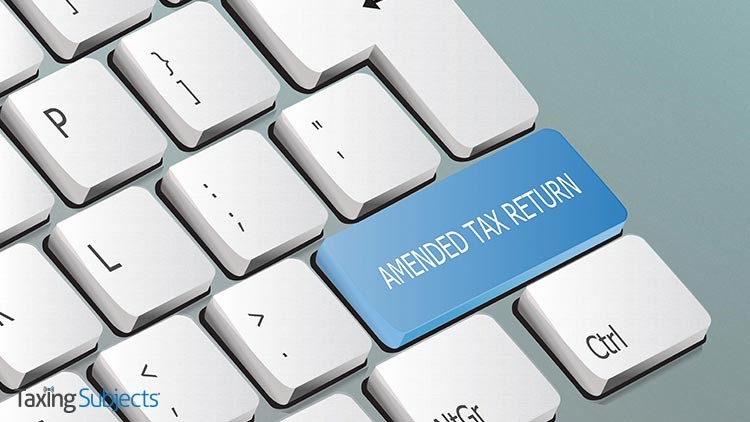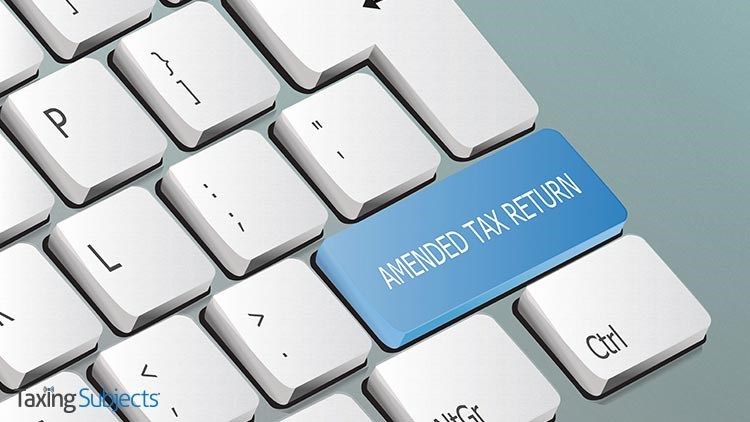
The office tasked with overseeing the Internal Revenue Service says the agency hasn’t improved procedures enough when it comes to reviewing amended tax returns.
The Treasury Inspector General for Tax Administration carried out its audit to follow up on earlier TIGTA examinations that found risks of fraudulent or erroneous tax refunds from amended tax returns.
This latest audit used a sample of some 230 amended tax returns, taken from the total of more than 1 million amended returns the IRS processed in 2017. Auditors found 33 returns they labeled “questionable” with more than $74,900 claimed in refunds.
TIGTA estimates, based on the sample results, the IRS issued almost $360 million in potentially erroneous tax refunds that was claimed on over 158,000 amended tax returns in 2017.Using those figures as a guide, the audit forecasts the IRS could conceivably pay out almost $2 billion in erroneous refunds over the next five years.
The Breakdown
TIGTA’s audit found that of the 33 flagged returns, 23 came from employee processing errors that led to $58,204 in potentially erroneous tax refunds. The audit uses those 23 returns to extrapolate that similar employee processing errors cost the IRS some $279 million in refunds in 2017.
The audit report says the errors included:
- Tax examiners or the CSRs (Customer Service Representatives) erroneously allowed adjustments when the taxpayer did not include the required form with the amended return. These included returns in which tax examiners or the CSRs processed claims to change the taxpayer’s standard deduction to itemized deductions. However, the taxpayer failed to attach the required Schedule A, Itemized Deductions, to the amended return. Internal guidelines require that Schedule A be attached to the amended tax return to allow a change from standard to itemized deduction.
- Tax examiners or the CSRs erroneously allowed deductions to which taxpayers were not entitled. These included returns in which tax examiners or the CSRs allowed deductions for student loan interest when taxpayers claimed the deduction for a nondependent student. Student loan interest deductions are only available for individuals legally obligated to pay the loan, i.e., parents or other relatives cannot claim a student loan interest deduction if they are not legally obligated to make loan payments.
- The CSRs did not forward amended returns to the Examination function when required. These included returns with claims for a reduction in Net Investment Income Tax that was over the specified threshold. Internal guidelines state that when claims meet specific criteria, they must be routed to the Examination function for review.
- Tax examiners or the CSRs erroneously adjusted credits on associated taxpayer tax accounts. These included returns in which the tax examiner or the CSR incorrectly adjusted a refundable tax credit that the taxpayer neither requested nor was entitled.
TIGTA found that the 10 remaining questionable returns that did not involve employee error would have been caught and rejected by existing e-file software if amended returns were filed electronically.
Accounting Today reports that the Inspector General has recommended in years past (previous audits went as far back as 2012) that the IRS change Form 1040, allowing taxpayers to amend their original tax returns using the same form. TIGTA also has recommended that electronic filing be enabled for amended returns, saving over $17 million in processing costs.
While disagreeing with the recommendation at the time, the IRS said it would consider changing the Form 1040X to include data related to income changes along with moving toward e-filing of amended returns.
Recommendations
The Inspector General makes a number of recommendations to the IRS, including:
- Review the 23 questionable amended tax returns identified and take the actions needed to ensure taxpayers receive only the benefits to which they are entitled.
- Implement adequate processes and procedures to identify and correct employee errors to reduce erroneous refunds issued.
- Complete a business case and request funding for expansion of e-filing to amended returns in the 2020 Filing Season in an effort to reduce unnecessary processing costs and erroneous refunds resulting from amended returns.
- Update processing procedures to hold the amended tax return from further processing when the taxpayer’s tax account.
The IRS agreed with most of TIGTA’s new recommendations, but disagreed on the need to hold amended returns until the taxpayer’s identity could be confirmed in cases of identity theft. Agency management claimed that existing controls already provide adequate protection.


